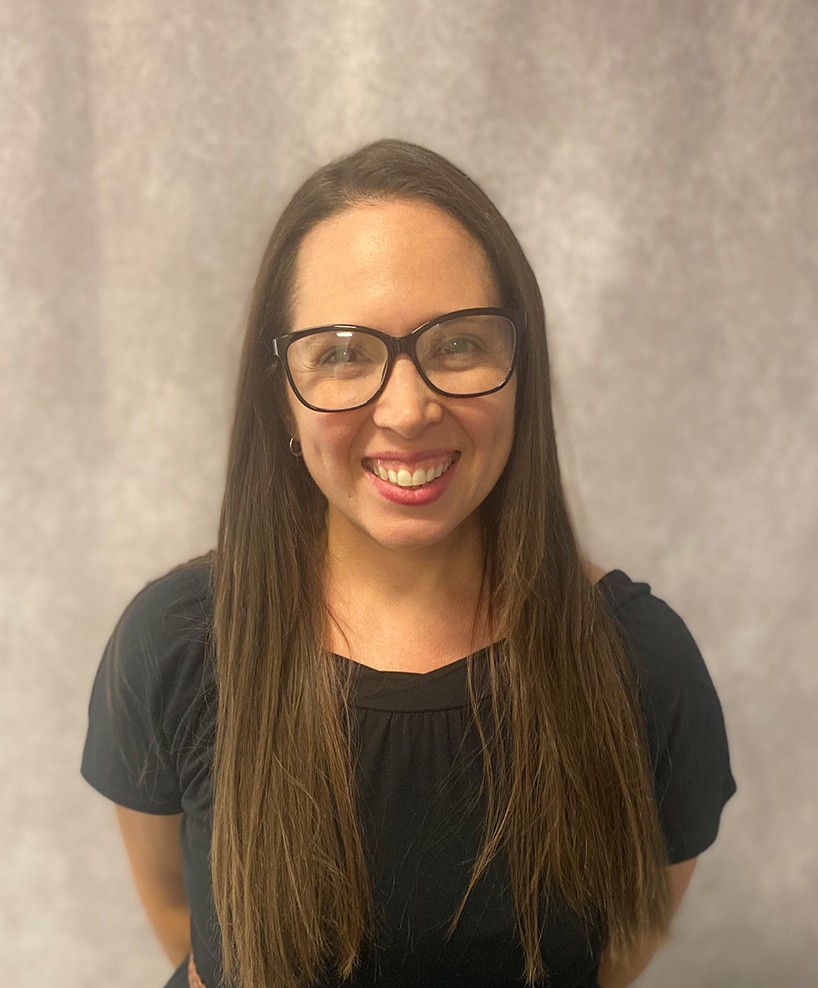Back to school: Conversations with adolescents and young adults about prevention and addiction

By Jennifer Fukuda • Addiction and Recovery Services Program Coordinator
Back to school time is both exciting and overwhelming! It brings opportunities for many conversations with our children. Talking about addiction is a way to show we are open to questions and aware of the challenges youth face today.
As kids head back to school, their parents and caregivers may want to think about discussing the use of drugs and other substances to prepare for a safe year ahead. The stigma associated with addiction can make it hard to talk about. Additionally, many parents of teens today grew up in the “Just Say No” era and prevention conversations have come a long way since then.
As parents, you don’t need to know the answer to every question. Just opening the door to the conversation is the key. (You can learn more by perusing the resources toward the end of this article.) Together, you can help each other learn, grow, and find the answers to questions.

Generation Z (or Zoomers) are the generation of kids born between 1997 and 2012. This generation is known for being ambitious, tech-savvy, and discerning. As a generation, they value transparency, independence, and their mental health more than prior generations (Said et al, 2020). They are also being exposed to drug use of all kinds at an earlier age. For example, middle school kids might see classmates vape before school and learn of tragic overdoses of older friends. These are things most of their parents had little or no exposure to at that age.
Talking about addiction is one of the best tools for prevention, and early intervention is important. Research has shown that delaying the start of substance use among young people, even by one year, can decrease substance use for the rest of their lives, according to Nora Volkow, M.D., NIDA director (2024d).
The statistics tell us the prevalence of underage alcohol and drug use is concerning and demands our attention as parents. According to the 2023 National Survey on Drug Use and Health (NSDUH), 33% of 12- to 20-year-olds reported drinking at least one drink in their lifetime (U.S. Department of Health and Human Services, 2024). Additionally, the National Center for Drug Abuse Statistics (NCDAS) found that at least one in eight teenagers abused an illicit substance in the past year. In Minnesota, 8% of 12- to 17-year-olds have reported using drugs in the last month (NCDAS, 2024a, NCDAS, 2024b). It is on our children’s minds, and having conversations with them can both decrease their risk of use while benefiting relationships and building trust. It can also empower them to have their own conversations, do their own research, and advocate for themselves.
Conversations with kids about alcohol, drugs, and addiction should start when they are young. This article focuses on conversations with adolescents and young adults. Let’s look at each group individually. A second article addressing children up to the age of 12 will follow this article in our October edition.
Adolescents (13-18 years):
This is a pivotal age that can feel challenging and exciting for both children and the adults in their lives. Talk to them about what is going on in the world, articles you have read, and harm reduction. Let them know you are not living under a rock! Ask them their views and listen to them; encourage them to come to you with questions – even if you don’t know the answer.
Foster their independence by supporting their autonomy and increasing their confidence. Remind them of trusted adults in their lives who care about them. Discuss a plan for a crisis and remind them the most important thing is for them to not take dangerous risks, like getting into the car with someone who has been drinking. While you don’t approve of drug or alcohol use, you never want them to feel like they can’t call you. Come up with a plan so they feel prepared.
Be open with them about your own experiences and talk about how asking for help is a sign of courage and strength. If you haven’t had much experience with drugs or alcohol, you can talk about your relationship with caffeine or your own screen-time moderation strategies. Discussions about addiction should also include biological components – if the child is pre-disposed to substance use disorder due to family history, they need to know about their increased risk. This is also an appropriate age to talk about how mental health (specifically depression and anxiety) and substance use often intersect and why keeping their brain healthy is so important (Mayo Clinic, 2023).
Young Adults (18+ years):
At this age, while they will always be your kids, they aren’t children anymore. Some will head off to college, many move out after high school to live on their own. The risks are still higher for anyone under the age of 25 because their brains are still developing (Substance Use & Youth, n.d.). Remind them substance use is still dangerous because their brain is maturing and vulnerable to being rewired by substances that overload the reward circuits of their developing brain (Mayo Clinic, 2023).
Discuss their plans for getting involved in their community and making healthy connections in their new stage of life. Talk about your young adult’s healthy coping strategies and encourage them to continue routines they already do to practice stress management, such as meditation, exercise, therapy, yoga, music, journaling; encourage them to try something new to practice self-care too. As they embark on a journey of their own, encourage them to stay true to who they are and who they want to be. Talk with them about their goals often. It goes without saying, but remind them that even when they are not living at home, they can always turn to you for non-judgemental help and support.
If you or your child need help due to substance use, if you have concerns of addiction, or are looking for support in having these discussions with your kids, we want to hear from you. Reach out to Jennifer at jfukuda@jfcsmpls.org or call 952-542-4837 to learn more about how JFCS can offer guidance and support for you or your loved one.
Tips for productive conversations:
- Be honest and keep it simple.
- Begin by asking them questions about what they know or think. Don’t assume anything, as parents often assume kids know more than they actually do.
- If you feel nervous, have the conversation in the car. This might help because no one is expected to have eye contact and there are natural distractions to help the conversation feel less tense.
- Keep coming back to it. Don’t let it be a one-and-done conversation.
Resources for parents and kids:
- Communities Confronting Substance Use & Addiction
- Natural High – check out their videos too
- DEA United States Drug Enforcement Administration
- Youth.gov
- Steve Rummler Hope Network Naloxone Access Points Map
- Article link to “Why Middle Schoolers Use Drugs”
- Article link to “Substance Use & Youth”
- Article link to “Teen drug abuse: Help your teen avoid drugs”
- Learn about nicotine pouches with this article
- This resource helps break down drugs, what they are called, how they are used, and what they do to your body
- A helpful one-pager with interesting facts
Feeling motivated? Get involved!
- Learn together about how to recognize an overdose and how to use Narcan (naloxone) by watching this short video. You can start carrying it in your car and your child can carry it in their backpack or sports bag.
- Read this article together about how Narcan is available for free nearby.
- Here is a location in Minneapolis where you can receive free Narcan: Fire Station 21, 3209 E 38th St, Minneapolis, MN 55406 (Timar-Wilcox, 2024). It is also sold at pharmacies.
- If your child is excited about being a leader in harm reduction, they could even advocate to have Narcan in their school.
References
- Mayo Foundation for Medical Education and Research. (2023, February 22). What parents should know about teen drug abuse. Mayo Clinic. https://www.mayoclinic.org/healthy-lifestyle/tween-and-teen-health/in-depth/teen-drug-abuse/art-20045921
- Said, R., Rashid, M., & Othman, M. (2020). Generation Z for job employment: Characteristic and … https://hrmars.com/papers_submitted/7072/Generation_Z_for_Job_Employment_Characteristic_and_Expectation.pdf
- Substance Use & Youth. Substance Use & Youth | Kelty Mental Health. (n.d.). https://keltymentalhealth.ca/substance-use-and-youth
- Talking with your kids about drugs, alcohol, and tobacco . University of Rochester Medical Center. (2024c). https://www.urmc.rochester.edu/encyclopedia/content.aspx?contenttypeid=1&contentid=1555#:~:text=Learn%20about%20the%20main%20drugs,or%20vaporizers%2C%20and%20chewing%20tobacco)
- Teenage drug use statistics [2023]: Data & Trends on abuse. NCDAS. (2024a, May 2). https://drugabusestatistics.org/teen-drug-use/
- Teenage drug use statistics [2023]: Data & Trends on abuse. NCDAS. (2024b, May 2). https://drugabusestatistics.org/teen-drug-use/#minnesota
- Timar-Wilcox, E. (2024, July 3). Minneapolis launches First Narcan Vending Machine. MPR News. https://www.mprnews.org/story/2024/07/03/minneapolis-launches-first-narcan-vending-machine
- U.S. Department of Health and Human Services. (2024). Underage drinking in the United States (ages 12 to 20). National Institute on Alcohol Abuse and Alcoholism. https://www.niaaa.nih.gov/alcohols-effects-health/alcohol-topics/alcohol-facts-and-statistics/underage-drinking-united-states-ages-12-20#:~:text=Prevalence%20of%20Lifetime%20Drinking,one%20drink%20in%20their%20lives.&text=This%20includes%3A,31.1%25%20in%20this%20age%20group)
- U.S. Department of Health and Human Services. (2024d, March 27). Reported drug use among adolescents continued to hold below pre-pandemic levels in 2023. National Institutes of Health. https://nida.nih.gov/news-events/news-releases/2023/12/reported-drug-use-among-adolescents-continued-to-hold-below-pre-pandemic-levels-in-2023
